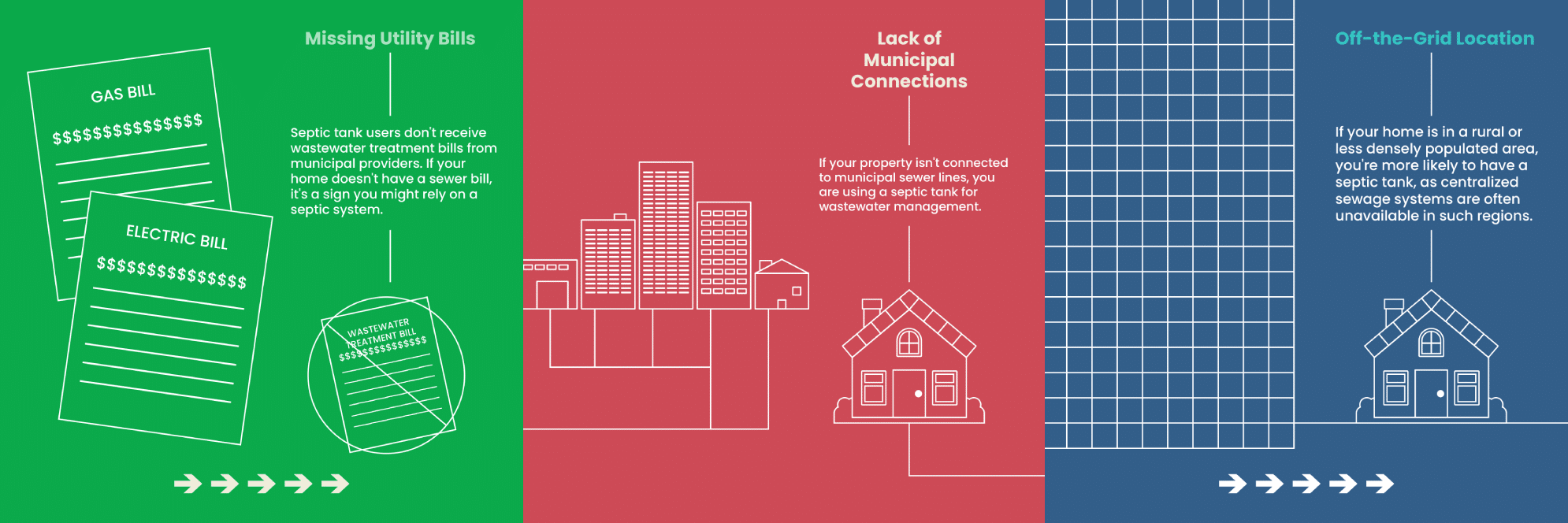If you’re a Florida homeowner, understanding the importance of a septic tank is crucial. These onsite wastewater treatment systems are the unsung heroes of many homes, especially in areas without access to centralized sewage systems. ACE Septic & Waste is here to explain why you need a septic tank, how to determine if you have one, and why Florida’s strict septic tank requirements matter.
How Do I Know If I Have a Septic Tank?
The first step in recognizing the need for a septic tank is identifying if your property uses one. Here are some indicators:
- Off-the-Grid Location: If your home is in a rural or less densely populated area, you’re more likely to have a septic tank, as centralized sewage systems are often unavailable in such regions.
- Missing Utility Bills: Septic tank users don’t receive wastewater treatment bills from municipal providers. If your home doesn’t have a sewer bill, it’s a sign you might rely on a septic system.
- Lack of Municipal Connections: If your property isn’t connected to municipal sewer lines, it’s highly probable that you use a septic tank for wastewater management.
For more information on determining whether or not you have a septic tank, read our guide that goes into further detail.
How Do I Know What Type of Septic Tank I Have?
Septic tanks come in various types and sizes. Determining the specific type of septic tank on your property might require some investigation. You can start by:
- Checking Records: Previous homeowners or property records may contain information about the type of septic system installed.
- Tank Location: The tank’s location in your yard can provide hints. Conventional systems have a septic tank and a drain field, which is generally situated close to the house. Alternative systems like aerobic treatment units might have different components and locations.
- Consulting a Professional: The surest way to identify your septic system is to consult a septic professional like ACE Septic & Waste. They can assess your property and provide details about your system’s type and requirements.
How High Should the Water Be in My Septic Tank?
Monitoring the water level in your septic tank is essential and an easy test to determine if your septic system is working properly. The wastewater level in a typical septic tank will rest beneath the outlet pipe, usually 7 to 10 inches from the top of the tank. This is necessary for:
- Proper Functioning: The water level affects the separation of solids from liquids. The system can efficiently treat wastewater when it’s at the correct level. If it’s too high, it might indicate a problem with the drain field or outlet pipe. If it’s too low, it could suggest issues with blockages or leaks within the tank.
- Early Detection: Regularly checking the water level allows you to identify potential problems early, preventing more severe septic system issues.
- Avoiding Overflows: A water level that is too high could lead to sewage overflows, which can be both unsightly and hazardous. Preventing overflow situations is essential for the health and safety of your household and our environment.
If your wastewater level is above the outlet pipe, contact ACE Septic for an inspection to determine the cause and help prevent damage to your septic system.
Why Are Florida’s Septic Tank Requirements Stricter?
Florida’s unique environmental conditions set it apart from many other states. Its low-lying terrain and high water table create challenges for septic systems. That’s why Florida’s septic system requirements, compared to other regions, have more attention from the state. The state places an increased focus on septic tank requirements for several reasons:
- Water Table Impact: Florida’s high water table makes the risk of groundwater contamination from poorly functioning septic systems more significant. These regulations help protect the state’s precious water resources.
- Ecosystem Preservation: Florida’s diverse ecosystems, including its springs and water bodies, require protection from pollution. Strict septic regulations help maintain water quality.
- Public Health: Well-functioning septic systems are vital for public health. By adhering to these regulations, Florida ensures the safety of its residents.
In Florida, ACE Septic & Waste is well-versed in the state’s septic regulations. They can help homeowners comply with these rules and avoid fines or violations. Whether you need to locate your tank, get an inspection, schedule routine maintenance, or upgrade your septic system, ACE’s experienced professionals can guide you through the process and keep your septic system in top condition.
Remember, a well-maintained septic system is essential for environmental preservation, public health, and the integrity of your property. So, if you’re wondering, “Why do I need a septic tank?” – it’s because your home, your state, and the environment rely on it.







